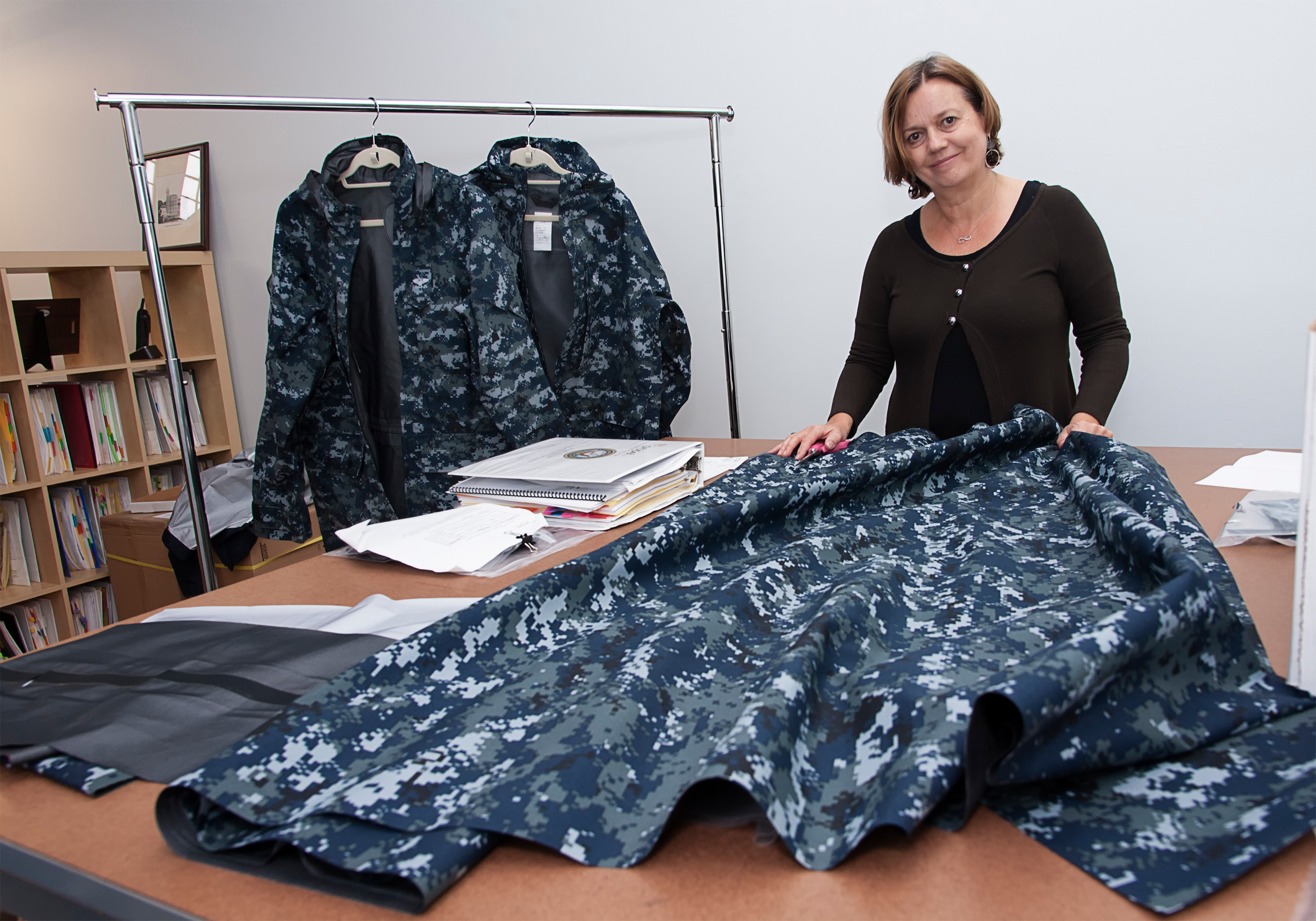
Propel LLC President Clare King has gone from making children’s clothing to the technology behind battlefield gear such as flame-resistant camouflage for Army snipers.
That may sound like a radical career change, but King’s professional journey is in many ways emblematic of the Greater New England textile industry.
Once focused on turning out everyday fabrics and clothing, many local companies have become specialists in “technical textiles” used in a wide range of applications.
And as textile factories moved first south and then overseas, New England companies working on advanced fabrics increasingly became likely to be consultants, engineers or designers rather than manufacturers.
Instead of working alone to produce products from start to finish, King said Propel works on specific elements of products in a collaborative setting with researchers, suppliers and factory owners.
“What we are very good at is building teams for projects,” King said. “Our understanding is bridging that chasm between the science side and what is needed in the real world.”
A United Kingdom native, King first moved to Rhode Island from Manhattan, where she worked in finance, to start a factory for her children’s-clothing company Cherry Tree.
King chose a factory in Providence’s Olneyville section because it had the capability to do stitching, but the costs were lower and livability better in Rhode Island than New York City.
The Cherry Tree factory employed 100 people, but by the mid-1990s manufacturing became unsustainable and King sold the company.
From there, she took a job with a Kansas City company focused on the defense business, where she became interested and experienced in the technical side of advanced textiles.
Unlike apparel, defense contracting, for the most part, cannot be outsourced overseas because of federal domestic purchasing rules. In the last two decades, most Providence-area textile companies have added at least some defense work into their business, if not specialized in it.
In 2006, King decided to head into business on her own again and founded Propel in offices on the East Side of Providence.
Propel generally works on components of products destined for the military or first responders.
For firefighters, Propel worked with Globe Manufacturing Co. on the Wearable Advanced Sensor Platform, undershirts that allow commanders to track the location and vital signs of their crews.
Propel also worked on the first fire-resistant sniper “yarn kits,” colored fabrics sharpshooters attach to their uniforms to help them blend into their surroundings.
Perhaps Propel’s biggest current project involves “stitchless engineering,” clothes made without needle and thread, which the company received a Phase 1 Small Business Innovation Research grant to pursue for the U.S. Navy. The company is working with experts from the University of Rhode Island and Rhode Island School of Design, as well as at least three commercial partners.
Exactly how the military would utilize stitchless clothing in the future isn’t entirely certain, but the SBIR program is designed to spur research and development of new technologies, then see how they percolate into the market.
Propel is now working on applying for a Phase 2 SBIR.
An even longer-term Propel project involves fibers that respond to and allow people to work comfortably in changing temperatures.
From its Providence office, Propel two years ago moved into a larger space in the Hope Artiste Village complex in Pawtucket.
King said the new space is larger and has access to a loading dock, which allows the company to bring in fabrics, test samples and equipment.
And Hope Artiste Village has also fostered collaborations with other tenants in the old mill, such as industrial designers, King said.
Like textile manufacturing, defense contracting was traditionally a male-dominated sector.
Now the federal government encourages buying from woman-owned businesses, which King hopes will give bids, including Propel as a subcontractor, at least a small boost.
“I don’t think the defense business is any different from other businesses in America, but there are some programs that help woman-owned companies,” King said.COMPANY PROFILE
Propel LLC
OWNER: Clare King
TYPE OF BUSINESS: Textile consulting
LOCATION: 999 Main St., Pawtucket
EMPLOYEES: 3
YEAR ESTABLISHED: 2006
ANNUAL SALES: WND












